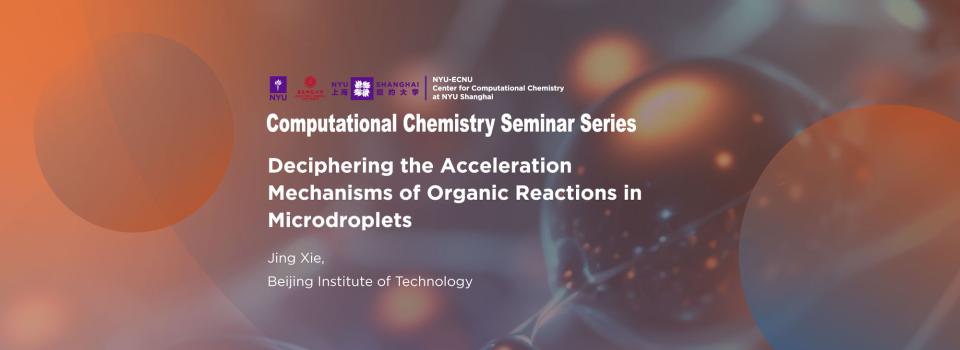
Abstract
Microdroplet chemistry is emerging as a great tool in accelerating reactions by several orders of magnitude. Several unique properties, such as extreme pHs, interfacial electric fields (IEF), and partial solvation have been reported to be responsible for the acceleration, however, which factor plays the key role remains elusive. Our group employs quantum chemical calculations and ab initio molecular dynamics simulations, in combined with experimental verification, to elucidate the acceleration mechanisms of reactions in microdroplets. I will show that the dominant acceleration factor differs depends on the reaction types, including SN2 reactions, aza-Michael addition reactions and Diels Alder reactions. Based on the dominating factor, we can design strategies to enhance the acceleration. Finally, I will discuss the molecular mechanism for water microdroplet converting carbon dioxide to formic acid. Our researches hold profound implications for applying microdroplet chemistry in synthesis and for advancing sustainable chemistry and green technology.
Biography
Jing Xie, Professor at the School of Chemistry and Chemical Engineering, Beijing Institute of Technology (BIT). Dr. Xie got PhD from Texas Tech University and did a postdoc at the University of Minnesota, then became BIT's faculty in 2019. Dr. Xie's research area is computational chemistry. Currently, the research group focuses on microdroplet reaction mechanisms and dynamics simulations and the design of porous catalytic materials. Dr. Xie has more than 60 publications in peer-reviewed journals, including Science, Nature, J. Am. Chem. Soc., Angew. Chem. Int. Ed, etc.
Seminar Series by the NYU-ECNU Center for Computational Chemistry at NYU Shanghai


